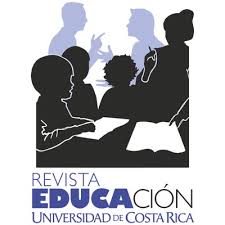Abstract
This study addresses the importance of digital literacy and developing digital technology skills among teachers. This is a qualitative case study based on a digital skills survey conducted among the faculty of the National Experimental Security University (UNES)
in Venezuela. The survey was scored according to the Cronbach Alpha Scale and had a reliability index of 0.75. The objective of the survey was to determine the digital competencies and application of these competencies in the classroom by UNES teaching
staff. The results of this study allowed us to confirm that most of the UNES teaching staff studied lack basic digital knowledge and showed strong weaknesses in appropriately developing their digital skills. A high percentage of the population group studied
expressed a certain level of rejection of the learning curve required to embrace technology as part of their pedagogical strategy. Overall, 37.3% of the representative population stated that they lacked basic digital skills, had never received any digital oriented
training and were only versed in using more traditional software such as Power Point. Among the different recommendations made was to plan teacher training workshops in the use of educational software and educational software design, for example, to
be update teaching skills required for effective use of the Internet in educational settings.
References
Referencias extraídas
Adell,J.(1997).Tendencias en Educación en la Sociedad de las Tecnologías de la Información. Revista EDUTEC n° 7 Recuperado a partir de http://nti.uji.es/docs/nti/Jordi_Adell_EDUTEC.html
Arrufat, M y Sánchez, V. (2010) El Futuro Docente Ante Las Competencias En El Uso De Las Tecnologías De La Información y Comunicación Para Enseñar. EDUTEC, Revista Electrónica de Tecnología Educativa. Núm. 34. Recuperado a partir de http://www.edutec.es/revista/index.php/edutec-e/article/view/
Barroso, J. (2007). La alfabetización tecnológica. En Cabero, J. (coord.) Tecnología educativa. Madrid: Mc Graw Hill, 92- 123.
Cabero, J., Romero, R., (2010). Diseño y Producción de TIC para la formación.. Recuperado a partir de https://books.google.co.ve/books?isbn=849788163X
Cacheiro, M. (2014). Educación y Tecnología: Estrategias Didácticas para la Integración de las TIC. Recuperado a partir de https://books.google.co.ve/books?id=8fylAwAAQBAJ&
Gallego, M., Gámiz, V., y Gutiérrez, E. (2010). El futuro docente ante las competencias en el uso de las tecnologías de la información y comunicación para enseñar. EDUTEC, Revista Electrónica de Tecnología Educativa. Núm. 34.Recuperado a partir de http://edutec.rediris.es/revelec2/revelec34/
Gallego, M., Gámiz, V., y Gutiérrez, E. (2010). El futuro docente ante las competencias en el uso de las tecnologías de la información y comunicación para enseñar. EDUTEC, Revista Electrónica de Tecnología Educativa. Núm. 34.Recuperado a partir de http://edutec.rediris.es/revelec2/revelec34/
GALLEGO,M .J.;GÁMIZ,!V.;GUTIÉRREZ,E. (2010)El futuro docente ante las competencias en el uso de las tecnologías de la información y comunicación para enseñar. EDUTEC, Revista! Electrónica! De Tecnología Educativa. Núm http://www.edutec.es/revista/index.php/edutec-e/article/view/418 34.Recuperado a partir de
Gros, B., Silva, J., Garrido, J., y Rodríguez, J. (2006). Estándares en Tecnología de la Información y la Comunicación para la Formación Inicial Docente – Situación actual y el caso Chileno. Revista Iberoamericana de Educación 38 (1), pp. 51-68. Recuperado a partir de http://www.rieoei.org/1391.htm
Marqués, P. (2000). Los docentes: funciones, roles, competencias necesarias, formación. Recuperado a partir de http:// www.uaa.mx/direcciones/dgdp/defaa/descargas/docentes_funciones.pdf
TEJADA, J. (2009). Competencias docentes. Profesorado. Revista de Currículum y Formación de Profesorado, 13(2), 1-15.
UNESCO (2008).Informe “Estándares de competencia en TIC para docentes”. París: Unesco. Recuperado a partir de http: http://www.oei.es/historico/tic/UNESCOEstandaresDocentes.pdf
Páez, H.(2008). Alfabetización digital para docentes de postgrado. PARADIGMA, Revista Electrónica del CIEP Centro de Investigaciones Educacionales. Núm. 2,Volumen 9. Recuperado a partir de http://www.scielo.org.ve/scielo.
Gómez, W (2010). Significado Que Le Dan Los Profesores Al Uso De Las TICS En Los Procesos De Enseñanza Y De Aprendizaje En Dos Instituciones Educativas. Recuperado a partir de http://www.colombiaaprende.edu.co/html/docentes/1596/articles
Sánchez, M. y Talavera, L. (2008). Pautas para la elaboración de la programación didáctica. Caracas: Universidad Iberoamericana del Deporte. Recuperado a partir de .http://www.uideporte.edu.ve/WEB/pdf/PAUTA
GONZÁLEZ, J. y WAGENAAR, R. (2003): Tuning Educational Structures in Europe.Informe Final - Proyecto Piloto, Fase 1, Bilbao, Universidad de Deusto.



